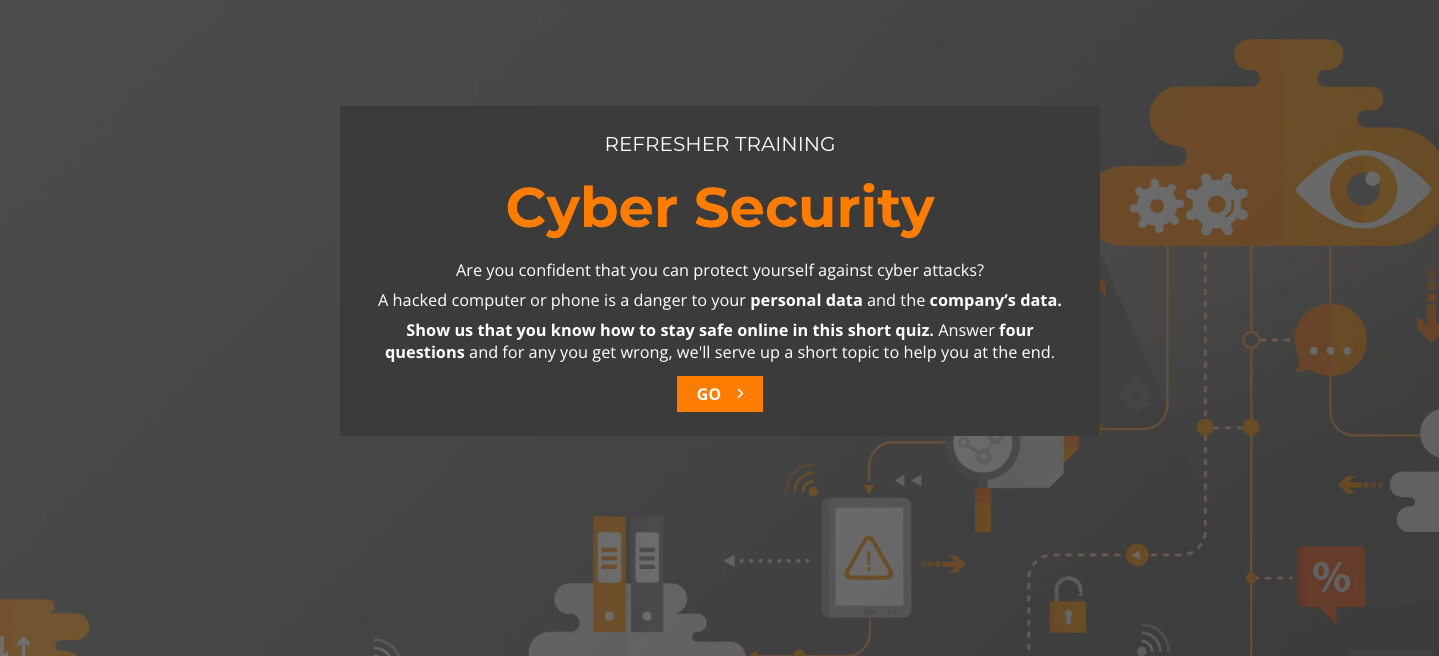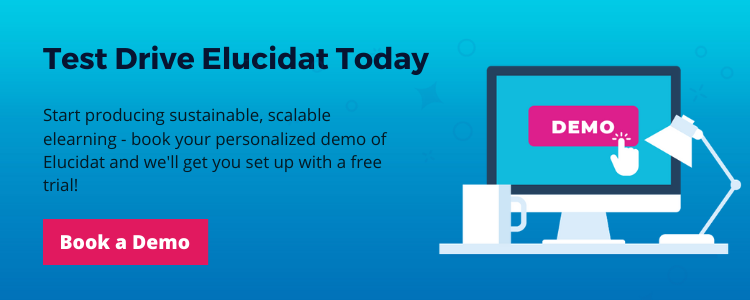Adaptive learning: a data-driven approach to personalized elearning
4 minute read
We all have our own unique needs. From our diets to daily routines, what works for one person might not necessarily make another person tick. The way we learn is no different.

In contemporary elearning, where advancements in data science and machine learning reign supreme, adaptive learning is on the tip of so many tongues. Elearning is adapting into something more personal than ever before. But what is adaptive learning, really? Read on to learn more about this intuitive type of learning.
What is adaptive learning?
Adaptive learning is a concept which sees the learning materials, or the course, adapt to the needs of the learner. A cutting-edge elearning trend, adaptive learning is an interactive, tech-based training method. Advancements in AI and other technologies allow it to create automated, personalized elearning which is dynamic to individual learning styles and requirements.
Adaptive learning is not a one-size-fits-all concept. It can be defined as creating a learning experience which is spontaneous and malleable, depending on the needs and performance of the learner in question. It results in instant feedback. Much like one-on-one training with an instructor, it zeroes in on areas for improvement and provides just-in-time help.
What are the benefits of adaptive learning?
There are a number of benefits of adaptive learning which makes it a top concept to consider. It’s exceptionally beneficial to achieving goal-orientated elearning and trims the fat off L&D strategy by supplying learning which works for the learner.
Adaptive learning makes the entire experience of gaining knowledge meaningful and personal. This heightens engagement, as the path it suggests is sure to resonate with the wants and needs of the learner in question.
It also standardizes learning outcomes. With all the different ways people absorb information, traditional methods of learning point them in different directions and toward various learning outcomes. Adaptive learning takes subtle differences into account and provides distinct ways of reaching the same learning outcome. It’s perfect for organizations training large teams with different learning styles.
Perhaps most importantly, it’s backed by data and fully digital. For example, assessment results around competencies of a certain skill would easily outline which members of the company require some training and adapt their development accordingly.
Finally, it has an undeniably positive impact on those who use it. Learners are more likely to persevere in tasks safe in the knowledge that their learning has meaning. Adaptive learning breeds confidence and offers a pace of learning that does not overwhelm.
Examples of adaptive learning
Definitions and explanations are all well and good, but nothing can compare to seeing a concept in action. After all, we all learn in different ways. That’s what adaptive learning is all about. Here, we’ll take a look at just a couple of examples of good adaptive learning.
Realizeit
Realizeit is an example of adaptive learning created at scale. It is designed to provide self-learning across the company with its intuitive learning platform. Throughout use, it analyzes and assesses each learner’s abilities, mapping out their experience along the way. This is one example of a platform where a tailored approach is facilitated by cutting-edge adaptive technology.
Design Digitally
Design Digitally creates personalized training solutions backed by data. It has the power to shape the training direction of entire companies, no matter how large, offering bespoke insights to each team member. It will give those in charge of L&D a nudge in the right direction when it comes to making informed future training decisions and helps match workplace learning to the specific goals and challenges of the organization.
Elucidat
Elucidat’s authoring tool is perfect for creating personalized adaptive learning. We support different types of adaptive learning, from role selectors to diagnostic quizzes. An example of the latter can be seen in a cyber security pre-test which was created on the Elucidat software.

This type of test intuitively identifies knowledge gaps, with relevant content served up based on responses. In the example, rules are used to display specific content to the learner based on their success in answering the previous question. This is just one example of ways in which Elucidat supports adaptive learning, but the possibilities are near-endless on the platform.
What is adaptive elearning software?
Adaptive elearning software is a learning technology which utilizes personalization to put the right materials in front of the learner. Think of it much in the same way as social media targets users with bespoke information. This elearning software highlights the exact things the learner needs to master to progress on their learning journey and delivers it.
How adaptive learning equates to personalized elearning
Throughout the process of adaptive learning, data is gathered. This data informs optimized training content which is tailored to the exact needs of the learner. This results in personalized learning.
While adaptive learning responds in a data-driven way, there are many other approaches to creating personalization in your elearning. For example, playing back the learner’s name or their inputted reflections to create a more tailored experience.
Why is personalized learning important? Learn more in our personalized elearning guide.
Adaptive learning with Elucidat
As we’re sure you’ll have realized during this article, adaptive learning is here to stay. This highly digital learning method is only set to get more intuitive and effective as technology develops. Its impact is already plain to see. If you’re interested in adaptive learning, Elucidat could be the tool for you.
Book a personalized demo here and see how you can reach your training goals with Elucidat.




